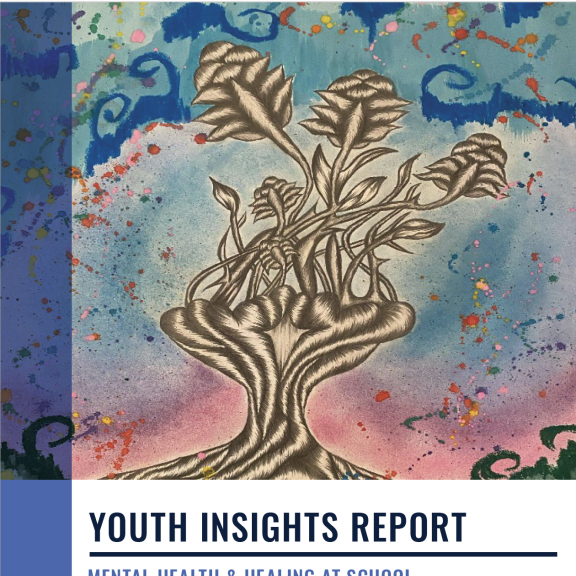Youth provide insights to help build healthier schools
Student wisdom, concerns & recommendations for more supportive campuses guides new report
Every student should feel safe in being their authentic self and comfortable in knowing their health and well-being is supported when they're at school. To turn this ideal into a universal reality we need to listen to and learn from students' experiences.
The National Center for Youth Law's new Youth Insights Report, which is based on conversations with more than 90 young people from throughout California, elevates students' voices in reshaping schools to better support their needs.
The interviews, conducted in spring 2023, highlight several areas in which middle and high school students feel schools are excelling and falling short in providing support. The students also offer valuable recommendations — just in time for the start of the new school year — for schools to strengthen their mental health supports and improve overall student well-being.
“I wish I had more support at school," said one of the high school students cited in the report. "I have had 3-4 therapists who have left mid-session from school and [I] had to repeatedly start from scratch, which has been frustrating. I recently tried reaching out for therapy and was told I had to be on a waitlist… They are not prioritizing my mental health needs.”
Insights Shared by Students
Many youth:
- Face stigmas surrounding mental health in their families, schools and communities;
- Value having trusted — those who they feel are authentic and vulnerable — adults at school;
- Want their schools to do more to support students' mental health and well-being;
- Have concerns about confidentiality and privacy of their health information;
- Want more counselors at school, and want those counselors to reflect their school population;
- Experience a high amount of academic pressure; and
- Recognize the value and impact of peer support resources.
With the middle school and high school students' insights broken into separate sections, the report also delves into the students' thoughts on what happiness looks like at school and the specific barriers to achieving that happiness.
Recommendations based on students’ insights include:
- Increasing the student-provider ratio for services that students can access at or through school;
- Ensuring a more diverse mental health workforce;
- Better training providers on communicating reporting duties to youth;
- Providing more resources to students, beyond things like numbers to helplines;
- Educating and training staff on mental health needs and resources for students;
- Offering a more robust mental health and well-being curriculum;
- Supporting the development of more student organizations that focus on mental health education; and
- Creating and supporting infrastructure for peer support programs at schools.
The first-hand experiences from students and the report's additional resources also helped inform the National Center for Youth Law's recently published toolkit, Helping Our Students Thrive: How Schools Can Support Student Mental Health and Well-Being.



